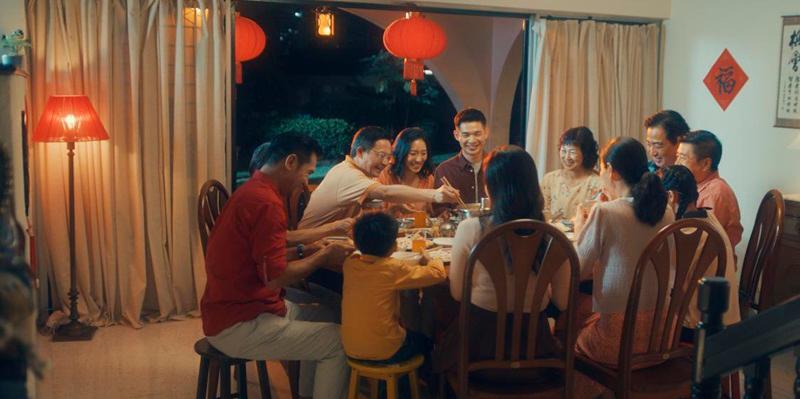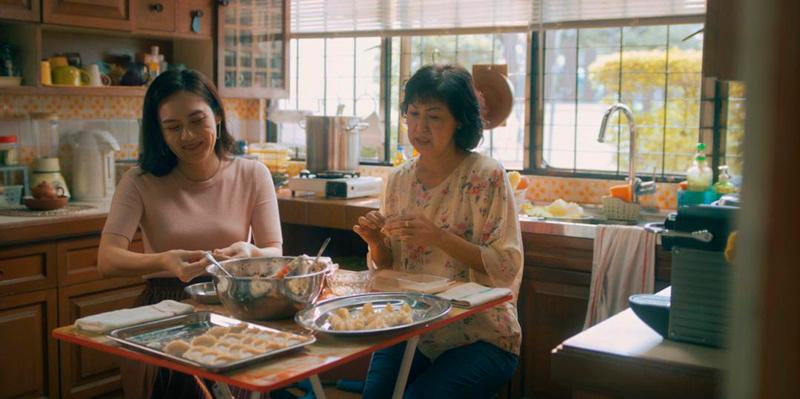SUBANG JAYA: Taylor’s has revealed its yearly Chinese New Year festive film. Staying true to its tradition of presenting insightful content that prompts reflection on different aspects of society, the film, titled 'Table Talk,' features typical Chinese New Year conversations with varying perspectives. It shines a spotlight on disagreements amidst the celebration, adding depth to the festive narrative.
Within Malaysia's diverse cultures, including the Chinese culture, various topics ignite discussions without a straightforward populist stance. Common conversations on schooling, career opportunities and marriage frequently delve into nuanced and multifaceted issues. The contrasting perspectives between the younger and older generations underscore the depth and complexity of societal viewpoints, reflecting the dynamic nature of cultural discourse in Malaysia.
The film opens with a poignant table conversation in the kitchen as an aunt and niece prepare dumplings. The aunt advocates for sending the child to a Chinese school, citing the advantages of learning Mandarin and in a Chinese school setting. In contrast, the niece leans towards a mainstream school for greater community diversity. The niece believes it's crucial for her son to interact with various communities, but the aunt counters, pointing out that even Malays and Indians now choose Chinese schools.

The choice between sending children to mainstream schools and vernacular schools sparks diverse conversations and considerations among Malaysian families.
Such conversations extend beyond the Chinese community. As noted by former Education Minister Datuk Dr Mohd Radzi Jidin back in 2020, there has been a surge in Malay students’ enrolment in Chinese vernacular schools, reaching 33% in 2020 from 9.5% a decade ago. This data suggests a trend of choosing Chinese schools, but it also shows that some parents still favour national (Kebangsaan) schools. The kitchen conversation, symbolic of broader educational discussions, mirrors a dynamic landscape where diverse school choices reflect the evolving preferences of Malaysian parents.
In another conversation between an uncle and his nephew, the uncle questions why the nephew chose to return to Malaysia rather than pursue better opportunities abroad. The nephew responds by expressing concern about the impact of everyone leaving for work overseas, emphasising the importance of people staying to contribute to Malaysia’s development.
Interestingly, a 2022 report from Kuala Lumpur-based independent think tank EMIR Research sheds light on the scale of this phenomenon. Approximately two million Malaysians currently reside overseas, with around half a million of them being individuals above 25 years old, a demographic more likely to be employed. The report ignited a debate about Malaysia’s brain drain situation – an issue characterised by the departure of skilled and talented individuals from the country.

The film highlights a conversation about Malaysia’s brain drain situation - an issue characterised by the departure of skilled and talented individuals from the country.
Another poignant exchange between two cousins delved into the timeless topic of marriage. The elder cousin, noting the younger cousin’s age, inquired about her plans for marriage. The younger cousin, resolute in her career focus, expressed no immediate intention to marry. The elder cousin countered, suggesting concerns about future care in old age, traditionally associated with children. The younger cousin firmly asserted that having children solely for caregiving expectations is not ethically justified.
The discussion escalated as the elder cousin conveyed the aspirations of the younger cousin’s mother regarding having grandchildren, and the younger cousin challenged the prioritisation of personal dreams. This discourse encapsulates a broader societal debate on the expectations imposed on women regarding marriage and motherhood, an ongoing and deeply rooted conversation that spans decades.
Recent controversial comments from an opposition member of parliament and compelling 2010 Census data, revealing a staggering 4.8 million unmarried women aged 30 and above, highlight financial concerns as the predominant factor influencing 56% of those choosing not to marry. Additionally, 18.5% cited difficulties in finding suitable partners, while 9.4% opted to remain unmarried due to career considerations. These figures vividly depict the multifaceted challenges women navigate within societal expectations, calling for nuanced discussions and understanding.

This scene discusses a societal debate on the expectations imposed on women regarding marriage and motherhood, an ongoing and deeply rooted conversation that spans decades.
In the midst of these persistent conversations across diverse cultures, the film seeks to underscore the idea that there’s no universally correct opinion on certain topics. Decisions are intricate, shaped by numerous factors, rendering them neither unequivocally right nor wrong. The film compellingly showcases the art of participating in respectful conversations, championing an “agree to disagree” mindset, and fostering a culture that encourages exploring and understanding the other side of the coin.
“The film embodies a celebration of diverse dialogue — the capacity to converse, debate, and dissent signifies the vitality of our society. Despite our differences, the film beckons viewers to acknowledge that common ground is always within reach. It calls for the embrace of varied perspectives, fostering conversations that cultivate unity and understanding. Rooted in Taylor’sphere philosophy, the film showcases our commitment to nurturing students’ intellect, creativity, and practical wisdom through purposeful learning,“ shared Ben Foo, Taylor’s Group Chief Marketing Officer.
At its core, the narrative unfolds with the brilliance of open communication, robust debate, and respectful idea exchange, making this cinematic journey a captivating exploration of education’s transformative power, Foo further explained.
The film showcases the art of participating in respectful conversations, championing an “agree to disagree” mindset, and fostering a culture that encourages exploring and understanding the other side of the coin.









